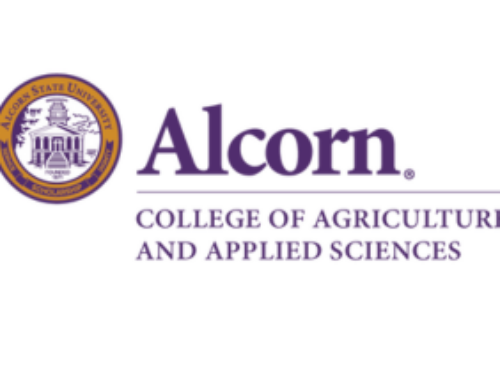Alcorn Hosts Second Annual United Nations Global Food Security Conference
“Food security is a major issue that affects countries around the world,” said Dr. Dovi Alipoe, director of the Office of Global Programs at Alcorn State University, in his opening speech at the second annual United Nations (UN) Global Food Security Conference.
The event was held March 22, 2016 on the Lorman campus.
Alcorn students, faculty, staff and community residents gathered in the Medgar W. Evers Auditorium of the J. D. Boyd Library to participate in the discussion highlighting the importance of food security in both developed and developing nations.
The event featured several distinguished speakers including Ambassador Tuvako Manogi, permanent representative of the United Republic of Tanzania to the UN, Ambassador Jeremiah Sulunteh of the Republic of Liberia in the United States, Theodore Lyng, director of the Office of Global Food Security, United States Department of State, and Nicola David Sakhleh, branch chief of the Food for Development Branch, Office of Capacity Building and Development, United States Department of Agriculture (USDA).
Dr. Donzell Lee, provost and executive vice president for Academic Affairs, offered greetings to the audience, followed by Steve Ginther, program director of the Humpty Dumpty Institute, who introduced the first presenter, Ambassador Manogi.
In his presentation, titled, “Food Security in Tanzania,” Ambassador Manogi explained the agricultural challenges facing the country. He referenced the poverty level within the country and abroad, discussed the levels of malnutrition in children, and shared the government’s efforts to address the issue.
“The will to share knowledge about food production is a great way to bring awareness to food security,” expressed Manogi.
Other conference presenters were Mario Martinez, a senior, biological sciences major, who introduced Ambassador Jeremiah Sulunteh, a prominent Liberian politician, administrator and professor. His presentation titled, “Food Security in Liberia,” described the challenges of agriculture in the country.
Ambassador Sulunteh gave an analysis of the poverty levels in the country in both rural and urban areas, problems in nutrition associated with it, and explained the government’s role in combatting the issues with food security.
In the presentation titled, “Feed the Future: The U.S. Government and Global Food Security,” Theodore Lyng, explained the role of the United States government in the initiative to establish food security in affected countries around the world. He discussed the history of global food challenges, and the UN’s role in securing healthier foods for the people within different countries. Lyng enlightened the audience about the UN Division for Sustainable Development’s goal to end hunger by the year 2030, achieve food security, improve nutrition, and promote sustainable agriculture.
Following a break, Nicola Sakhleh, presented on the topic of the U.S. response to food security. He discussed the branches of the USDA Food and Nutrition Service, and described their roles in providing assistance in food security. The USDA aids several programs, including the Food for Progress which targets developing countries, and supports the expansion of private enterprise on agricultural sectors.
“The impact that we’ve had has been slow but steady,” said Sakleh. “The challenges that we are facing are innumerable. I don’t think people realize all that we’ve accomplished with Food for Progress.”
The program concluded with a plenary session during which each speaker summarized his presentations and answered questions from the audience.
For more information about this and future UN Lecture Series events, or for more information on the programs and services provided by the Office of Global Programs, contact Dr. Dovi Alipoe 601.877.6543 or [email protected] .
Student Media Interns Deja Harris, KeAmber Council, and Renita Lacey contributed to this story.




